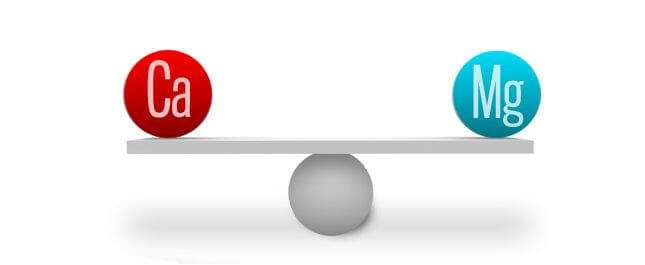What Is The Best Form of Magnesium to Help You Sleep?
Magnesium is the mineral equivalent of the little engine that could. You might not think about it much, but it’s there, powering many of your body’s processes and functions. One thing it’s most well known for is helping people get a good night’s sleep.
But, what is the best form of magnesium for sleep? Some types of magnesium just aren’t absorbed by the body so well. There are a few types of magnesium that can make you sick to your stomach and aren’t the best for helping you get your 40 winks.
I wanted to find out which form of magnesium would provide the most benefit to the sleep deprived, so I took a close look at the forms available and what they do.
In this article:
How Magnesium Helps You Sleep
Everyone’s got an internal clock. Some of us just happen to have a clock that works a bit better than others. When your internal clock is ticking along, you’re able to fall asleep at a reasonable hour, sleep for a good amount of time and wake up feeling rested.
As it turns out, a study from the University of Edinburgh found that good old magnesium plays a big role in keeping your internal clock ticking.
Throughout the day, your body’s magnesium levels are rising and falling, based on whether you should be active or sleeping. Having low levels of magnesium are going to disrupt your body’s natural rhythms, getting in the way of your ability to drift off to sleep at night.
Magnesium vs. Calcium

It’s not just a magnesium deficiency that gets in the way of your sleep. It’s also the presence of calcium. When you don’t have enough magnesium, calcium takes over, keeping you awake.
“Wait, I thought we needed calcium!” You might be thinking. We do, but we also need to keep our magnesium and calcium levels in balance to get the best night’s sleep. The best form of magnesium improves your sleep by keeping your calcium levels in check.
Best Types of Magnesium for Sleep
If you’re interested in trying magnesium supplements to help you sleep, you can’t just run to the store and grab a bottle of magnesium pills. There are a lot of options available, and most are pretty affordable. The problem is, they probably won’t give you the results you’re after.
Magnesium needs to bind to another molecule to be stable enough to take. The magnesium you get from food is naturally bound to other substances, mainly amino acids. The connection helps your body better absorb the mineral.
In supplement form, magnesium can be bound to a variety of substances. Usually, the larger the substance or molecule, the more effective that form of magnesium will be.
When it comes to helping you get a good night’s sleep, the best forms of magnesium include:
- Magnesium Glycinate. One of the most absorbable forms of magnesium, it’s bonded to glycine, which also helps the body relax. Magnesium glycinate is a form that is least likely to cause digestive distress or diarrhea.
- Magnesium Chelate. In magnesium chelate, the mineral is bound to one or more amino acids. Like magnesium glycinate, it’s easily absorbed by the body.
- Magnesium Threonate. Magnesium bonded to Threonate is very easily absorbed by the body. It’s also the only form that can cross the blood-brain barrier, making it one of the best forms of magnesium for improving not only sleep but also brain function.
- Magnesium Chloride. A study published in Magnesium Research found that magnesium chloride was the form that had the highest absorbability and availability. An additional study involving 200 patients revealed that magnesium chloride helped improve sleep in 99% of patients.
Combining forms of magnesium can often provide the best night’s sleep. For example, MagTech Magnesium Complex includes three of the best forms available – Threonate, glycinate, and taurate.
Worst Forms of Magnesium for Sleep
You’re better off leaving some types of magnesium on the shelf. While these forms might have their benefits, they are not absorbed well and can cause unpleasant side effects.
- Magnesium oxide. Magnesium oxide is a great form to take if you need the laxative effects of magnesium. But it’s not so great for sleep since the body doesn’t absorb it very well.
- Magnesium citrate. Magnesium citrate is another form of magnesium that’s great for use as a laxative (used to treat and prevent constipation). But you’ll get much better results from other forms if your goal is to improve your sleep.
Oral vs Transdermal Magnesium
Although magnesium in pill form might be very common, you don’t always have to take the mineral orally. Your body can also absorb it through the skin.
Epsom salts are a very common form of transdermal magnesium. You can fill a bath with water and add a handful of Epsom salts to help you relax. The magnesium in the salts in particularly helpful for easing muscle cramps and for reducing inflammation.
Magnesium oil is another transdermal form of the mineral. You can apply magnesium oil in a number of ways, from massaging it into the skin to soaking in a bath with a few drops of oil.
People sometimes make their own lotions by combining magnesium oil with shea or cocoa butter and coconut oil.
Transdermal magnesium won’t cause the digestive issues that oral forms can. But I have to point out that it can be irritating to the skin. People with sensitive skin need to be particularly careful when using magnesium oil or when soaking in an Epsom salt bath.
If you have sensitive skin, I would recommend starting with a small amount of oil. Apply it to use one area and see how your skin reacts. If you have a lot of tingling or stinging, an oral form might be a better option for you.
Conclusion
So, what is the best form of magnesium for sleep? My preference is for MagTech, which combines three of the best forms of magnesium into one capsule. Another great option is Magnesium Threonate, which does not only helps you sleep but also improves cognition and brain function.
Have you tried magnesium to help you sleep? If so, let us know in the comments!
[catlist excludeposts=this template="div" conditional_title_tag="h6" conditional_title="Other Magnesium resources" id="195" tags="using"]

